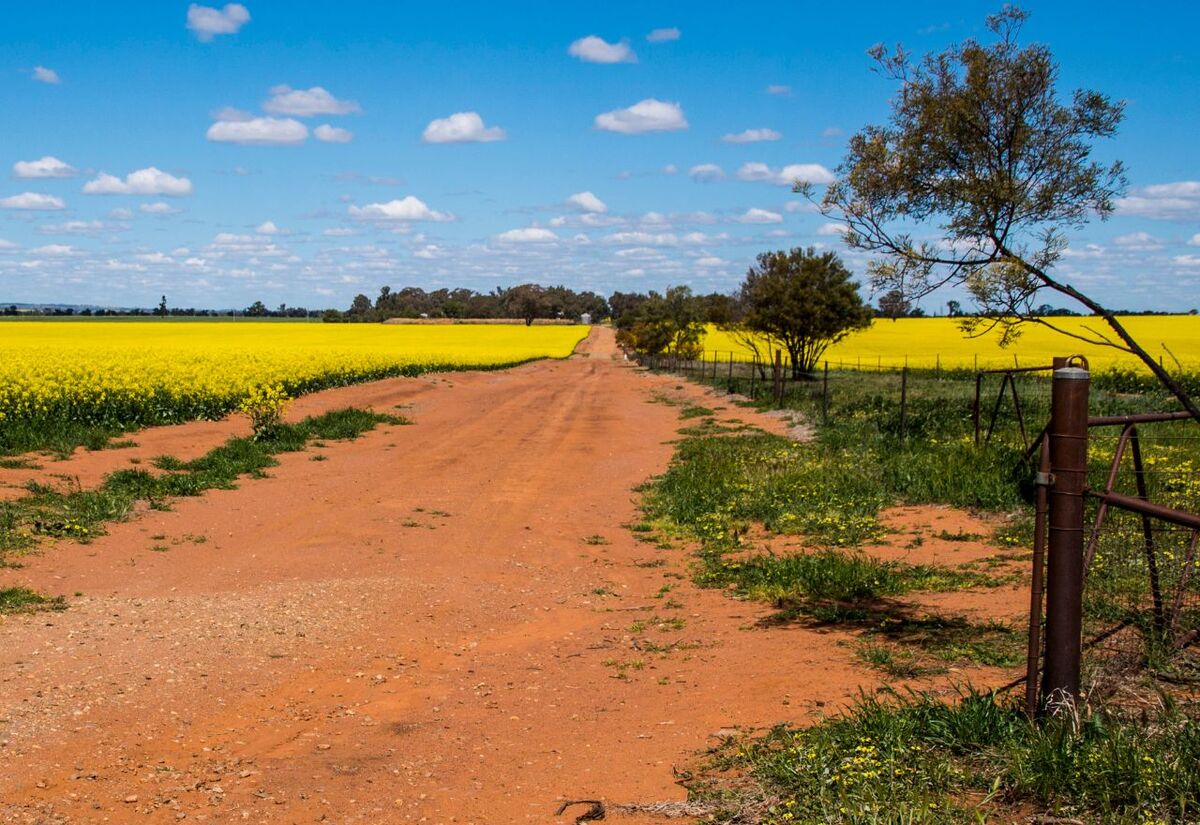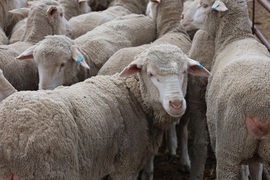Fears NSW farming land may be taken for Murray Darling Basin plan
Krista Schade
17 October 2024, 10:00 PM
 NSW Farm
NSW Farm NSW landholders are fearful of government forcibly acquiring their land, according to one advocacy group.
“These feelings have been exacerbated by a recently released draft discussion paper, followed by a series of meetings,” said Wakool River Association chair John Lolicato.
Wakool River Association says the NSW Government may use compulsory acquisition of land to claim easements, to allow higher flow levels of environmental water to be delivered to South Australia under the Murray-Darling Basin Plan.
Landholders have been highlighting for many years that the volumes of water being acquired and stored in upstream dams under the Basin Plan will not physically fit down the system without causing major disruption.
Wakool River Association chair John Lolicato, a long-time advocate for a more common-sense approach to Basin Plan implementation, says recent meetings with NSW Government personnel have exacerbated landholder concerns.
“We know that due to constraints such as the Barmah Choke and numerous other physical restrictions, the volumes proposed under the Basin Plan simply cannot be delivered downstream without causing flooding of private and public land.
“While governments also know this indisputable fact, it’s an issue that has been ‘kicked down the road’ for many years.
“Now, the NSW Government has prepared what it calls a draft Landholder Negotiation Regulation Scheme, with what’s called a ‘public exhibition process’ until October 27.
“After attending one of their information sessions in Deniliquin, and reading the draft regulations, I think farmers should be more worried than ever,” Mr Lolicato said.
He said it was disappointing the eight planned meetings over two days in Deniliquin appear to be designed to limit informed discussion and questions regarding the process and the associated Reconnecting River Country Program.
“A better way would be to work collaboratively with our representative groups and hold public meetings so the people attending all hear the same answers and questions.
“However, that may mean the authorities would have to answer some difficult questions, and their process is designed to avoid this.
“Even the most basic data that is required by a landholder to make an informed decision regarding the negotiation process could not be provided. For example, on each landholding what are the proposed flows, including their height duration, frequency, extent and timing?
“Without this information, how can a landholder decide what is in their best interest?”
Mr Lolicato said the draft regulations make it clear that landholders have two options – negotiation or compulsory acquisition.
“If the government undervalues a landholder’s property or the infrastructure required, and the landholder refuses to accept an inadequate offer, the Minister can step in and grab what they want.
“Department officials at the meetings were unable or unwilling to answer genuine questions relating to realistic compensation packages for easements. When asked if compensation would be ‘event based’ or ‘one off’, it was clear there would be only one payment, regardless of ongoing potential damage or liability.
“When asked about compensation if a crop was accidentally flooded by environmental flows, the answer was a distinct ‘no’ under the proposed legislation. So governments can ruin a farm business, negligently or accidentally, and there are no consequences.
“That is not the Australian way. In effect, they’re holding a gun at our head,” Mr Lolicato said.
And while the negotiation process is under control of the NSW Government, it was clear the MDBA’s proposed Constraints Roadmap could take over the decision-making regarding flow volumes and duration, thus absolving the NSW Government of responsibility.
“Many aspects of the poorly designed and implemented Basin Plan have been of huge concern for the nation’s food and fibre producers for nearly two decades, and unfortunately the situation is getting worse, not better,” Mr Lolicato said.
“In a nutshell, this latest legislation is designed to give the NSW Government the power to compulsorily acquire our land, and past experiences in any policy area tells us the landholder will not be fairly compensated.
“Even worse, it will make the government immune from any liability or litigation if water is released and it causes damage.
“The constraints issue has been the Basin Plan’s ‘elephant in the room’ for a long time.
“This new draft process has the potential for governments to pick winners and losers and create more division within our regional communities. It undermines the social fabric that holds our communities together,” Mr Lolicato said.
Submissions on the draft regulations can be made to the NSW Department of Water until 11.59pm on Sunday, October 27 2024.

